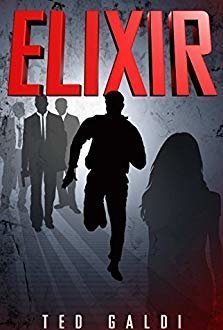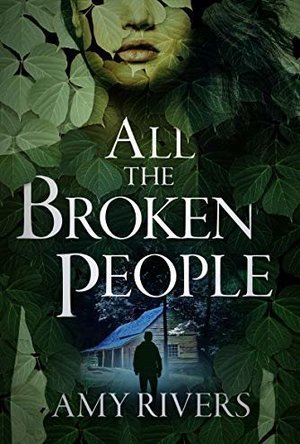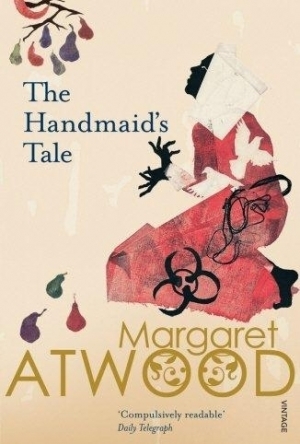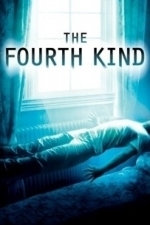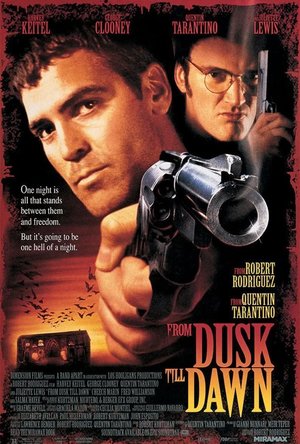Search
Search results
Whatchareadin (174 KP) rated Elixir in Books
Apr 3, 2019
What is 5+2? How about 5x2? Those are easy right? What about 456328x22? Not so easy without a pen and paper or a calculator. For Sean Malone, these answers come to him very easily. At age 11 he was a Jeopardy champion. Now at age 14 he's a sophomore at Southern California Technical University and working on a project that no one has been able to figure out. The problem of the traveling salesman. When Sean does solve the problem, not only is his professor impressed. So are the head of the NSA, Secretary of Defense and the FBI. Sean didn't know that by solving this simple problem he also found a way into everything.
This debut novel from Ted Galdi is an exciting look into the mind of geniuses. Sometimes being the smartest one in the room isn't always the greatest thing. I thoroughly enjoyed this novel. I couldn't wait to pick it up everyday and find out what was going to happen next. There are a few thrilling moments in the book where you are on the edge of your seat. You are always rooting for Sean though throughout it's entirety. This book spans Sean's life from age 14 on with glimpses into his life before. You meet his friends and family and he becomes someone you want to know. Are there people like Sean in the world today who can come up with fascinating ideas that can change the world?
I'm afraid if I speak on this book too much I will give away the whole thing. All I can say is that you have to pick it up and give it a try for yourself.
This debut novel from Ted Galdi is an exciting look into the mind of geniuses. Sometimes being the smartest one in the room isn't always the greatest thing. I thoroughly enjoyed this novel. I couldn't wait to pick it up everyday and find out what was going to happen next. There are a few thrilling moments in the book where you are on the edge of your seat. You are always rooting for Sean though throughout it's entirety. This book spans Sean's life from age 14 on with glimpses into his life before. You meet his friends and family and he becomes someone you want to know. Are there people like Sean in the world today who can come up with fascinating ideas that can change the world?
I'm afraid if I speak on this book too much I will give away the whole thing. All I can say is that you have to pick it up and give it a try for yourself.
Billie Wichkan (118 KP) rated All the Broken People in Books
May 22, 2019
Alice Bennett knows what it means to suffer. After burying her abusive childhood and reinventing herself, Alice is living a life she never imagined could be hers. She's married to a perfect Southern gentleman. She has a challenging job she loves--writing for a woman's magazine. But when her past comes back with a vengeance, Alice finds herself on the outs with her husband, her perfect life crumbling around her feet.
Desperate to get things back to where they were, Alice travels to the mountains of North Georgia to care for her mother-in-law who was injured in a bad fall. Her motives aren't purely altruistic; she's hoping to get back into her husband's good graces. When she arrives, Alice discovers that the fall was no accident. Alice must battle her own inner demons as she uncovers the not-so-perfect truth of her husband's past. Ugly family secrets and devious attacks from an unknown assailant threaten to kill more than just Alice's dreams.
A dark journey into the Georgia mountains where kudzu covers the landscape and a grudge can last generations.All the Broken People will leave you questioning who the good guys really are or whether they exist at all.
This is an absolutely great suspenseful thriller, a roller coaster ride of a book! I couldn't put it down! The characters were well written, the intricate plot was fascinating. Just a wonderful book!
There is plenty of suspense and surprises.
The conclusion was something I didn’t see coming which is always fun.
The author has a real sense of how to build the tension to bring out the best pieces of the plot.
Thank you Netgalley and Publisher for this early copy!
Desperate to get things back to where they were, Alice travels to the mountains of North Georgia to care for her mother-in-law who was injured in a bad fall. Her motives aren't purely altruistic; she's hoping to get back into her husband's good graces. When she arrives, Alice discovers that the fall was no accident. Alice must battle her own inner demons as she uncovers the not-so-perfect truth of her husband's past. Ugly family secrets and devious attacks from an unknown assailant threaten to kill more than just Alice's dreams.
A dark journey into the Georgia mountains where kudzu covers the landscape and a grudge can last generations.All the Broken People will leave you questioning who the good guys really are or whether they exist at all.
This is an absolutely great suspenseful thriller, a roller coaster ride of a book! I couldn't put it down! The characters were well written, the intricate plot was fascinating. Just a wonderful book!
There is plenty of suspense and surprises.
The conclusion was something I didn’t see coming which is always fun.
The author has a real sense of how to build the tension to bring out the best pieces of the plot.
Thank you Netgalley and Publisher for this early copy!
Debbie (52 KP) rated The Handmaid's Tale in Books
Jul 26, 2018
The Handmaid's Tale By: Margaret Atwood
Adult Fiction 295 Pages My rating 4 stars
I wasn't sure that I wanted to read this because looking at the cover reminded me of nuns and I really didn't want to read about nouns. As I heard people talking about this book I finally decided to give it try.
I was pleasantly surprised. I really enjoyed this book. This book talks about the world as we know it but is no longer the same. We are still around but have gone back a little in time. The women are no longer allowed to hold jobs, have money or property. Everything they have now is now owned by the men.
Our main character is known as a handmaid and her job is to have babies. She is assigned to a family and once a month she has relations with the husband and yes the wife knows in fact she is there with them. She has a very boring life. She is only allowed to eat certain things and can not smoke or drink. She is allowed once a day to go outside to run an errand for the cook. She is not allowed to go by herself she meets up with another handmaid and they shop together. They are watched all the time.
She is adjusting but can still remember what life was like back a few years ago. Before all the changes she was married and had a little girl. She doesn't know what happened to her husband or her child.
You must read this book to find out the changes and how she got where she is now. The ending leaves a little to the imagination. Please give it a try, it is a good story.
Adult Fiction 295 Pages My rating 4 stars
I wasn't sure that I wanted to read this because looking at the cover reminded me of nuns and I really didn't want to read about nouns. As I heard people talking about this book I finally decided to give it try.
I was pleasantly surprised. I really enjoyed this book. This book talks about the world as we know it but is no longer the same. We are still around but have gone back a little in time. The women are no longer allowed to hold jobs, have money or property. Everything they have now is now owned by the men.
Our main character is known as a handmaid and her job is to have babies. She is assigned to a family and once a month she has relations with the husband and yes the wife knows in fact she is there with them. She has a very boring life. She is only allowed to eat certain things and can not smoke or drink. She is allowed once a day to go outside to run an errand for the cook. She is not allowed to go by herself she meets up with another handmaid and they shop together. They are watched all the time.
She is adjusting but can still remember what life was like back a few years ago. Before all the changes she was married and had a little girl. She doesn't know what happened to her husband or her child.
You must read this book to find out the changes and how she got where she is now. The ending leaves a little to the imagination. Please give it a try, it is a good story.
BookwormMama14 (18 KP) rated The Huntress of Thornbeck Forest (A Medieval Fairy Tale, #1) in Books
Jan 2, 2019
Danger and romance lie deep in the heart of Thornbeck Forest. Where a poacher's only desire is to feed the poor. The forester determined to catch the poacher. And a margrave who holds the future of all in his hands.
"Because love was the best reason of all!"
Odette Menkels has a burning desire to help the orphans of Thornbeck. And the forest at her doorstep has an abundance of wild game. The only problem is that the game belongs to the king. Nevertheless, Odette braves the wrath of the margrave who is responsible for the Thornbeck forest. Every night she disguises herself, hunts the deer and feeds the poor. Her life is changed in an instant when she meets Jorgen Hartman, the forester, at the Midsummer festival. Jorgen has found evidence of a poacher and would like nothing better than to bring this poacher to justice. What will he do if he finds out that Odette is the poacher? Will Odette have everything stripped from her? There will be many confessions and consequences, but not all are bad...and some may even surprise you!
This is the first book I have read by Melanie Dickerson, but it won't be the last! I already have The Golden Braid on my list to read by the end of the year. I believe that writing medieval fairy tales for adults was a stroke of genius! The thrill of the chase. The excitement of the hunt. Balls and finery, sorrow and hunger, the desire to do good and the consequences of the laws of the land. The tragic circumstances of the day were portrayed very well. Life in 1363 was rough! But we are reminded that the bonds of love and family are not to be trifled with. Enter the forest of Thornbeck and be whisked through an incredible journey.
"Because love was the best reason of all!"
Odette Menkels has a burning desire to help the orphans of Thornbeck. And the forest at her doorstep has an abundance of wild game. The only problem is that the game belongs to the king. Nevertheless, Odette braves the wrath of the margrave who is responsible for the Thornbeck forest. Every night she disguises herself, hunts the deer and feeds the poor. Her life is changed in an instant when she meets Jorgen Hartman, the forester, at the Midsummer festival. Jorgen has found evidence of a poacher and would like nothing better than to bring this poacher to justice. What will he do if he finds out that Odette is the poacher? Will Odette have everything stripped from her? There will be many confessions and consequences, but not all are bad...and some may even surprise you!
This is the first book I have read by Melanie Dickerson, but it won't be the last! I already have The Golden Braid on my list to read by the end of the year. I believe that writing medieval fairy tales for adults was a stroke of genius! The thrill of the chase. The excitement of the hunt. Balls and finery, sorrow and hunger, the desire to do good and the consequences of the laws of the land. The tragic circumstances of the day were portrayed very well. Life in 1363 was rough! But we are reminded that the bonds of love and family are not to be trifled with. Enter the forest of Thornbeck and be whisked through an incredible journey.
BookwormMama14 (18 KP) rated A Song Unheard (Shadows Over England, #2) in Books
Jan 2, 2019
Roseanna's books continue to completely blow my mind! Filled with so much heart-wrenching, heart-stopping, heart-melting events that it literally takes DAYS to recover. My poor heart can't handle any more at the moment. That being said...YOU NEED TO READ THIS SERIES!!! (Start with Book One, A Name Unknown) Set during the beginning of World War I we see a different side of the war than what we may be used to. The Belgium Orchestra Relief Fund...Based in Wales. So.Much.Music! I LOVE it!!!
One of the aspects of this story that struck me in the heart, is the fact that God KNOWS us. And He will speak to us in a unique and individual way that will grip our heart and MEAN SOMETHING to us. For me personally, God uses books, songs, art, and dance...pretty much anything in the 'arts'...to speak life and truth into my life. For Willa...well...you will have to wait and see.
Lukas and Willa create the perfect romantic tension and reminds us that no one is beyond saving. I absolutely adore Margot (Lukas's sister) and am so glad that we also get to see this story from her perspective in Brussels. Her brilliant mind and unique gift for "puzzles" adds a whole different layer to the story. It just goes to show, that when God has given us a gift, there are numerous ways that we can use it to help others and glorify Him.
If you love romance, mystery, history, and have a soft spot for music...You will fall in love with Lukas, Margot, and Willa and her "family" in a heartbeat.
I received a complimentary copy of A Song Unheard from the publishers. I was not required to write a positive review. All opinions expressed are mine alone.
One of the aspects of this story that struck me in the heart, is the fact that God KNOWS us. And He will speak to us in a unique and individual way that will grip our heart and MEAN SOMETHING to us. For me personally, God uses books, songs, art, and dance...pretty much anything in the 'arts'...to speak life and truth into my life. For Willa...well...you will have to wait and see.
Lukas and Willa create the perfect romantic tension and reminds us that no one is beyond saving. I absolutely adore Margot (Lukas's sister) and am so glad that we also get to see this story from her perspective in Brussels. Her brilliant mind and unique gift for "puzzles" adds a whole different layer to the story. It just goes to show, that when God has given us a gift, there are numerous ways that we can use it to help others and glorify Him.
If you love romance, mystery, history, and have a soft spot for music...You will fall in love with Lukas, Margot, and Willa and her "family" in a heartbeat.
I received a complimentary copy of A Song Unheard from the publishers. I was not required to write a positive review. All opinions expressed are mine alone.
Gareth von Kallenbach (980 KP) rated The Fourth Kind (2009) in Movies
Aug 9, 2019
Based on true events, “The Fourth Kind” is a thriller/semi-documentary covering the seemingly unexplained true events that occurred to psychologist Abigail Turner, portrayed in the film by Milla Jovovich. “The Fourth Kind” presents Abby’s story merging dramatic renditions with actual video and audio footage of the strange occurrences.
It is a creepy film filled with close up shots of spooky owls and the hauntingly foggy skies of Nome, Alaska. All this imagery creates a mystical scene but it left me wondering whether is it the films content or an extremely good knowledge of camera angles that created the lingering possibility of truth?
Furthering my dislike of the film are the unnecessary plot deviations, such as the start and conclusion by Jovovich, and the slow and disjointed family sequences which make the characters hard to relate to. Moreover, it seems as if much of the film’s content could be removed and possibly presented as a stronger case for an encounter of the fourth kind as short film or even television episode.
But the most glaring objection to the film’s premise is that it is built on a very small amount of evidence. Sure, the evidence that is presented is disturbing but the limited actual video and audio clips utilized make the film feel gimmicky. Dr. Turner’s story is intriguing but it does not support a satisfying a full-length film, especially for audiences hoping to see something that will force them to reexamine their stance on alien life forms.
In the end what you probably want to know is if this movie significantly change my views on the possibility of alien life forms or if it scared me to my core. The simple answer is no, but it did make me less enthusiastic about visiting to Nome, Alaska.
It is a creepy film filled with close up shots of spooky owls and the hauntingly foggy skies of Nome, Alaska. All this imagery creates a mystical scene but it left me wondering whether is it the films content or an extremely good knowledge of camera angles that created the lingering possibility of truth?
Furthering my dislike of the film are the unnecessary plot deviations, such as the start and conclusion by Jovovich, and the slow and disjointed family sequences which make the characters hard to relate to. Moreover, it seems as if much of the film’s content could be removed and possibly presented as a stronger case for an encounter of the fourth kind as short film or even television episode.
But the most glaring objection to the film’s premise is that it is built on a very small amount of evidence. Sure, the evidence that is presented is disturbing but the limited actual video and audio clips utilized make the film feel gimmicky. Dr. Turner’s story is intriguing but it does not support a satisfying a full-length film, especially for audiences hoping to see something that will force them to reexamine their stance on alien life forms.
In the end what you probably want to know is if this movie significantly change my views on the possibility of alien life forms or if it scared me to my core. The simple answer is no, but it did make me less enthusiastic about visiting to Nome, Alaska.
Leigh J (71 KP) rated From Dusk Till Dawn (1996) in Movies
Nov 13, 2019
Bloody Brilliant!
Seth and Richie Gecko are criminals who have escaped Prison and are on the run. They are staying in a Hotel trying to think of a way to get into Mexico, where a criminal friend is waiting for them at a Bar, and from there they are starting a new life. At the Hotel there is a Pastor and his Son and Daughter who have arrived in a Mobile Home; Seth sees this and holds the family hostage until he's met with his friend at the Bar over the border. They just manage by the skin of their teeth to get past the Mexican border and are onward to the Bar... which turns out to be a sleazy Biker Bar called the Titty Twister. When they get into the Titty Twister; the Gecko Brothers love this place, full of fighting, Tequila and topless dancing women. But when a violent and bloody confrontation between the Gecko Brothers and the Titty Twister Security happens, the many members of Staff show their true colours... and it means the Brothers and his hostages are going to have to fight for their lives the whole night.
I LOVE From Dusk Till Dawn. I've seen it so many times now and I think it's amazing everytime. Robert Rodriguez has given a unique lease of life to Horror and teamed it with quite the "Cops 'N' Robbers" storyline. It's an extremely visual movie; especially when you get into the Titty Twister and all the chaos happens, and speaking of that, I love how chaotic it is in the Titty Twister. It seems like there's always something happening and there's little background details that you pick up everytime you watch it. It's a wonderful, wonderful Horror Movie and I will definitely be watching it again and again. Bloodcurlingly awesome!!
I LOVE From Dusk Till Dawn. I've seen it so many times now and I think it's amazing everytime. Robert Rodriguez has given a unique lease of life to Horror and teamed it with quite the "Cops 'N' Robbers" storyline. It's an extremely visual movie; especially when you get into the Titty Twister and all the chaos happens, and speaking of that, I love how chaotic it is in the Titty Twister. It seems like there's always something happening and there's little background details that you pick up everytime you watch it. It's a wonderful, wonderful Horror Movie and I will definitely be watching it again and again. Bloodcurlingly awesome!!
Gareth von Kallenbach (980 KP) rated Jeff, Who Lives at Home (2012) in Movies
Aug 7, 2019
Everyone knows a guy like Jeff (Jason Segel). Someone who never really left home, opting instead to sit around waiting for a sign. Jeff’s family is not much better. His daft, unaware brother, Pat (Ed Helms), has his life centered on a marriage that is devoid of connection or even much conversation. Jeff’s mother, Sharon (Susan Sarandon), spends her days de-stressing by staring at a waterfall picture in a drab office environment. But today a change is going to come in a big way to the people in Jeff’s life.
In “Jeff, Who Lives at Home” both Segel and Helms have taken on roles that are slightly more serious than the comedic standards that these actors are known for. Still the film is not so far removed as to alienate the fans who diligently follow these two actors to the theater time and time again.
The film’s plot is full of unexpected yet mildly realistic twists and turns. There are no big explosions or giant leaps of faith. This serpentine story is much more subtle. Many of the standout moments are realistically bizarre yet prove relevant, sweeping the audience into lives that have hit the final dregs of acceptability.
Visually the film is lack-luster. More than once viewers experience uncomfortable close-up shots of the less than attractively decorated characters. Still the script is well composed and crafted with such care that every word seems to naturally flow from the actors’ mouths. The story delves into so many facets of the human experience, from marriage to the building of a brotherly bond, that the tale itself is engrossing.
The characters are nervous, inexperienced, and closed off but the tale that defines “Jeff, Who Lives at Home” is entirely relatable. The film is not exactly enchanting but it was significantly better than I had originally anticipated.
In “Jeff, Who Lives at Home” both Segel and Helms have taken on roles that are slightly more serious than the comedic standards that these actors are known for. Still the film is not so far removed as to alienate the fans who diligently follow these two actors to the theater time and time again.
The film’s plot is full of unexpected yet mildly realistic twists and turns. There are no big explosions or giant leaps of faith. This serpentine story is much more subtle. Many of the standout moments are realistically bizarre yet prove relevant, sweeping the audience into lives that have hit the final dregs of acceptability.
Visually the film is lack-luster. More than once viewers experience uncomfortable close-up shots of the less than attractively decorated characters. Still the script is well composed and crafted with such care that every word seems to naturally flow from the actors’ mouths. The story delves into so many facets of the human experience, from marriage to the building of a brotherly bond, that the tale itself is engrossing.
The characters are nervous, inexperienced, and closed off but the tale that defines “Jeff, Who Lives at Home” is entirely relatable. The film is not exactly enchanting but it was significantly better than I had originally anticipated.
AJaneClark (3975 KP) rated The Last Kingdom - Season 1 in TV
Apr 24, 2020
Great start!
Contains spoilers, click to show
When Anglo-Saxons are attacked by Viking forces, Uhtred, born a Saxon but raised by Vikings, finds his loyalties tested as he tries to claim his birthright and help create a new nation.
The first episode: Abducted by a Viking warlord after his father is slain in battle, young Uhtred adopts the Norse way of life until tragedy befalls his new family.
Episode 2: Caught between his scheming uncle Ælfric and pitiless Viking warlord Ubba, Uhtred goes on the run and seeks out Alfred, the man who would be king.
Episode 3: Uhtred allies himself with newly crowned Alfred, but his commitment to the nascent king jeopardizes his bond with Brida.
Episode 4: After Uhtred faces betrayal and falls into hostile hands, his Danish brother, Ragnar the Young, scrambles to save his life.
Episode 5: After rescuing Mildrith, Uhtred joins the fierce battle of Cynuit and vanquishes a forbidding foe, only to have Odda the Younger claim the victory.
Episode 6: Uhtred catches the eye of a lovely pagan queen, and his band of raiders becomes mercenaries for a Cornish king. But he soon faces the fury of Alfred.
Episode 7: Driven to hiding in the marshes after the Vikings invade Wessex, Uhtred and Alfred finally make amends and devise a plan for retaking the kingdom.
Episode 8: Calling upon Saxon forces to rally and drive the Vikings out of Wessex, Uhtred and Alfred gird for a decisive battle, but treachery awaits.
Season one of The Last Kingdom introduces us to a great cast, lots of action scenes and full on drama from the start. It is very well scripted with moments of humour, battle scenes, moments of heartbreak and drama. The great casting ensures that the actors and actresses are well suited to their roles.
The first episode: Abducted by a Viking warlord after his father is slain in battle, young Uhtred adopts the Norse way of life until tragedy befalls his new family.
Episode 2: Caught between his scheming uncle Ælfric and pitiless Viking warlord Ubba, Uhtred goes on the run and seeks out Alfred, the man who would be king.
Episode 3: Uhtred allies himself with newly crowned Alfred, but his commitment to the nascent king jeopardizes his bond with Brida.
Episode 4: After Uhtred faces betrayal and falls into hostile hands, his Danish brother, Ragnar the Young, scrambles to save his life.
Episode 5: After rescuing Mildrith, Uhtred joins the fierce battle of Cynuit and vanquishes a forbidding foe, only to have Odda the Younger claim the victory.
Episode 6: Uhtred catches the eye of a lovely pagan queen, and his band of raiders becomes mercenaries for a Cornish king. But he soon faces the fury of Alfred.
Episode 7: Driven to hiding in the marshes after the Vikings invade Wessex, Uhtred and Alfred finally make amends and devise a plan for retaking the kingdom.
Episode 8: Calling upon Saxon forces to rally and drive the Vikings out of Wessex, Uhtred and Alfred gird for a decisive battle, but treachery awaits.
Season one of The Last Kingdom introduces us to a great cast, lots of action scenes and full on drama from the start. It is very well scripted with moments of humour, battle scenes, moments of heartbreak and drama. The great casting ensures that the actors and actresses are well suited to their roles.
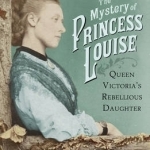
The Mystery of Princess Louise: Queen Victoria's Rebellious Daughter
Book
The secrets of Queen Victoria's sixth child, Princess Louise, may be destined to remain hidden...
